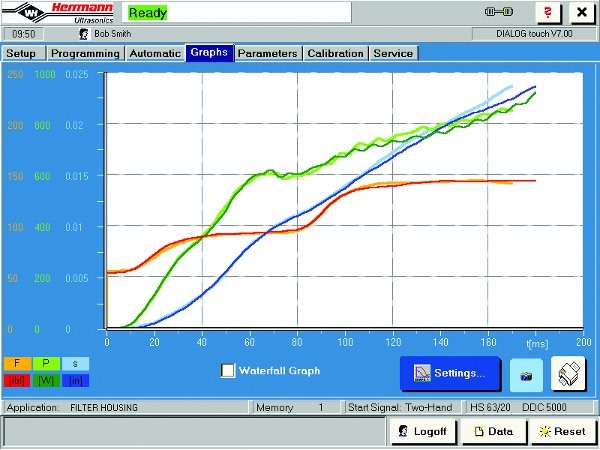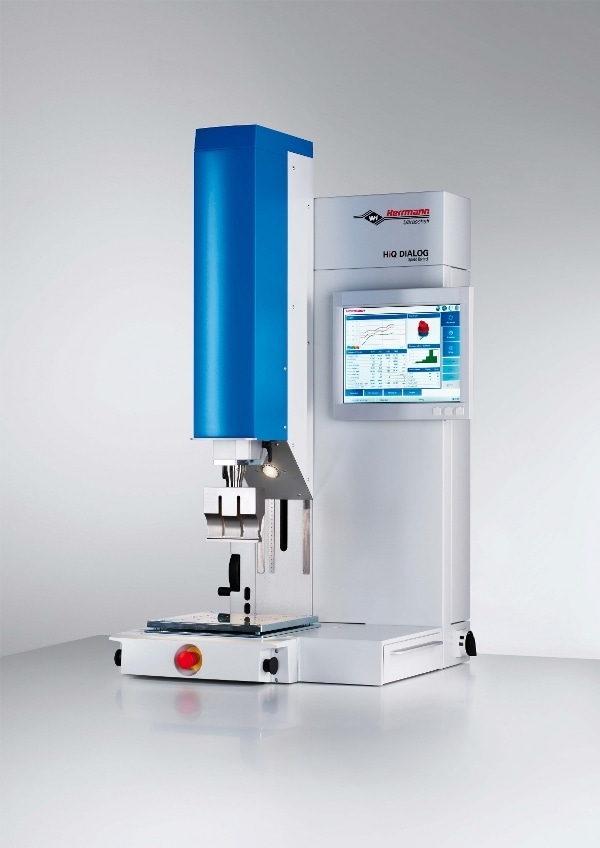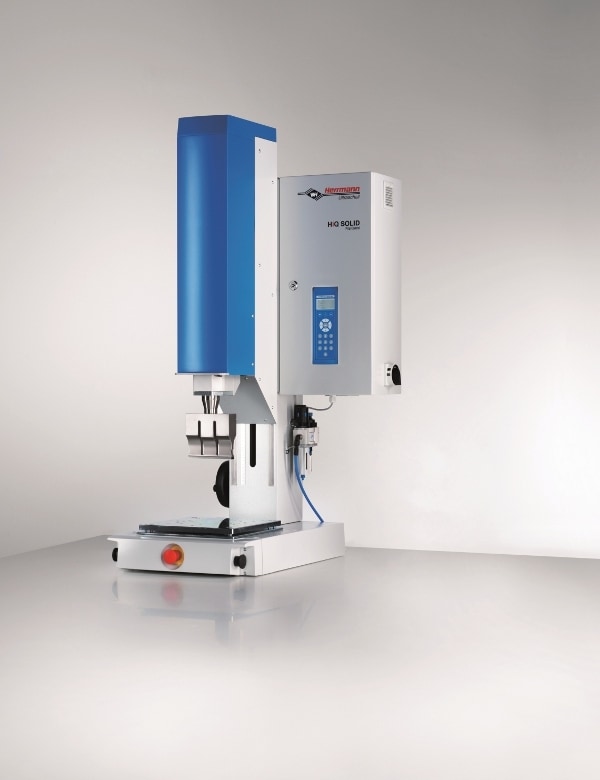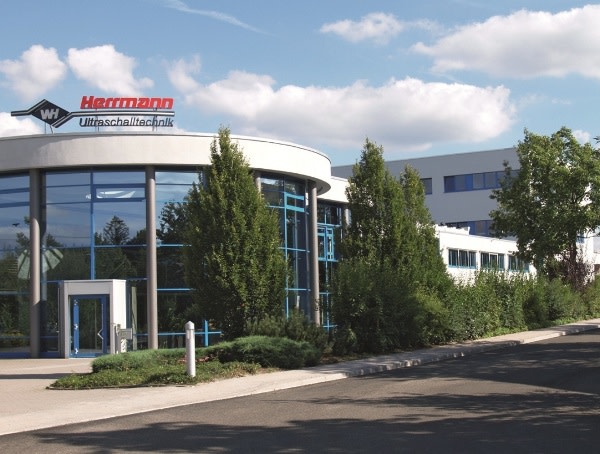A good weld can be displayed visually. The graphical representation of the welding power, joining velocity and weld force permits exact statements about the quality of the joining process.
A rapid and linear slope of the joining velocity curve (blue) is desired for even melt built-up and good, repeatable results. This avoids unnecessary loads on the part and guarantees reproducibility of the welding process.
The controlled switchover to a different weld force in mid-process, as available in the HiQ DIALOG machine, ensures the linear and smooth slope of the curve and therefore helps to optimize the weld.




Herrmann Ultraschall with headquarters in Germany has 260 employees with subsidiaries in North America and China.
More info: www.herrmannultraschall.com



